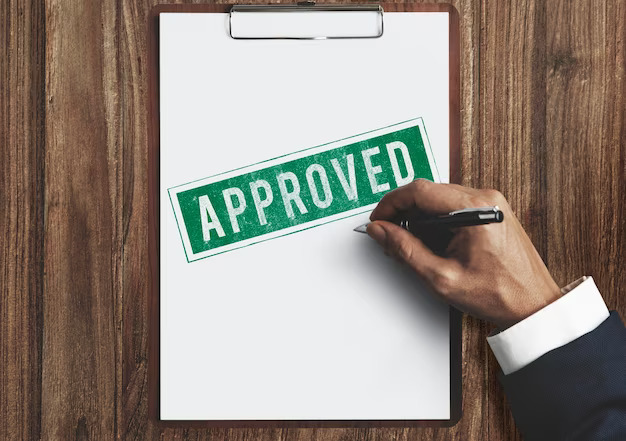Insurance Claims: Insurance plays a crucial role in our lives, providing financial protection when unexpected events occur. Whether it’s a car accident, a medical emergency, or damage to your home, insurance helps ease the burden by covering the associated costs. However, before you can receive these benefits, you need to navigate the insurance claims process. In this article, we’ll break down the key steps in a typical insurance claims process, making it easier to understand and navigate when the need arises.
Contact Your Insurance Company
The first and most crucial step in the insurance claims process is contacting your insurance company as soon as an incident occurs. Most insurers have a specific time frame within which you must report a claim, so it’s essential to act promptly. When you reach out to your insurer, provide them with all the necessary details about the incident, such as the date, time, location, and any parties involved.
Understand Your Policy
Before proceeding further, it’s essential to understand your insurance policy thoroughly. Different types of insurance (e.g., auto, health, home) cover various types of incidents and have their own terms and conditions. Review your policy document carefully to understand what is covered, any deductibles you may need to pay, and any limitations or exclusions. Knowing your coverage will help manage your expectations during the claims process.
File Claim

Once you’ve reported the incident, your insurance company will guide you through the claims filing process. They may ask you to complete claim forms and provide supporting documentation, such as police reports, medical bills, or repair estimates, depending on the type of claim. It’s essential to be thorough and honest in your documentation to avoid any delays or disputes.
Claim Investigation
After receiving your claim, the insurance company will assign an adjuster to investigate the incident. The adjuster’s role is to assess the validity of the claim, gather evidence, and determine the extent of the damage or loss. They may also interview witnesses, inspect the scene, and review relevant documents. This investigation helps the insurer make an informed decision regarding your claim.
Damage Assessment
In cases involving property damage, such as a car accident or home damage, the insurance company may send a claims adjuster or an appraiser to assess the extent of the damage and estimate the cost of repairs or replacement. This assessment is critical for determining the amount of compensation you’ll receive.
Claim Settlement
Once the investigation and damage assessment are complete, your insurance company will make a decision regarding your claim. If your claim is approved, they will offer a settlement. This settlement can include financial compensation to cover medical bills, repair costs, or the replacement of damaged property. Be sure to review the settlement offer carefully and consult with your insurance agent or attorney if you have any concerns.
Negotiation (If Necessary)
In some cases, the initial settlement offer may not fully cover your losses or medical expenses. If you believe the offer is insufficient, you have the option to negotiate with your insurance company. Provide additional evidence or documentation to support your claim and work with your insurer to reach a fair and satisfactory resolution.
Accept Or Appeal

After negotiations, if you and your insurance company reach an agreement, you can choose to accept the settlement and move forward with the process. However, if you still disagree with the outcome, you have the right to appeal the decision. Insurance companies have established procedures for appealing claims, which may involve a review by a higher authority within the company or mediation.
Receive Payment
Once you’ve accepted a settlement or successfully appealed your claim, the insurance company will issue a payment to cover your losses or expenses. The method of payment and timing can vary depending on the insurer and the nature of the claim. Be sure to keep records of all payments and communications related to your claim.
Close The Claim
With the settlement payment in hand, you can now close your insurance claim. Be sure to notify your insurance company officially that you are satisfied with the resolution and consider whether any additional actions are required, such as signing release forms or confirming repairs.
Read Also :Why Your Family Needs The Right Insurance Coverage.
Conclusion
Navigating the insurance claims process can be daunting, but understanding the key steps can help streamline the experience. Remember to report the incident promptly, understand your policy, provide accurate documentation, and be prepared to negotiate if needed. Ultimately, the goal of the insurance claims process is to provide you with the financial support you need when unexpected events disrupt your life. By following these steps and working closely with your insurance company, you can ensure a smoother and more successful claims experience.
FAQs
1. What should I do immediately after an incident that requires an insurance claim?
After an incident, such as a car accident or property damage, it’s crucial to contact your insurance company as soon as possible. Reporting the incident promptly is the first step in the claims process.
2. How do I understand what my insurance policy covers?
To understand your insurance coverage, carefully review your policy document. It outlines the types of incidents covered, deductibles, limitations, and exclusions. If you have questions, reach out to your insurance agent for clarification.
3. What documents and information do I need to file an insurance claim?
When filing a claim, you’ll typically need to provide details about the incident, including the date, time, location, and any involved parties. Depending on the claim type, you may also need to submit supporting documents like police reports, medical bills, or repair estimates.
4. How does the insurance company determine the amount of my claim?
The insurance company assigns an adjuster to investigate your claim. They assess the validity of the claim, gather evidence, and determine the extent of the damage or loss. For property damage claims, an appraiser may also estimate repair or replacement costs.
5. What if I’m not satisfied with the insurance company’s settlement offer?
If you believe the initial settlement offer is insufficient, you have the option to negotiate with your insurer. Provide additional evidence or documentation to support your claim, and work with your insurance company to reach a fair resolution. If needed, you can also appeal the decision.
Source Image : Freepik.com